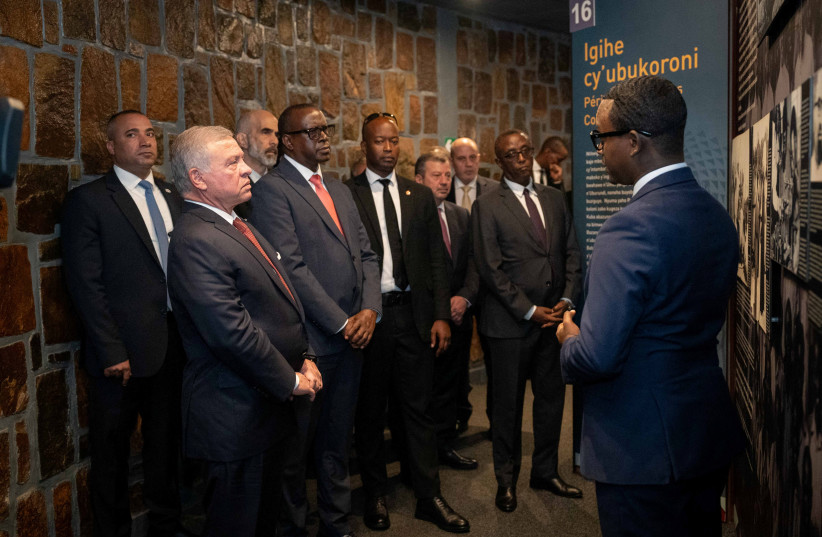Jordan's King Abdullah said on Monday that Israel had created a whole generation of orphans with its "brutal" war in Gaza, where he said over 30,000 people, mostly women and children, had been killed or were missing as a result of the conflict.
In remarks at the Kigali Genocide Memorial in Rwanda, where the monarch spoke of "unspeakable crimes" during that African conflict, Abdullah said a lesson to be drawn was that Israel's "indiscriminate aggression" in Gaza would never guarantee its security. His remarks were carried on state media following a statement by the royal palace.
"More children have died in Gaza than in all other conflicts around the world this past year. Of those who have survived, many have lost one or both parents, an entire generation of orphans," he said.
"How can indiscriminate aggression and shelling bring peace? How can they guarantee security when they are built on hatred?" Abdullah said of Israel's war against the terrorist group Hamas.

King Abdullah's visit to Rwanda
The monarch, who toured the Rwandan Genocide Memorial site and wrote comments on a visitors' list, was briefed on the exhibits that retold the horror of the 1994 killings.
He said Rwanda's experience "teaches us we must fight the dehumanizing rhetoric that fuels conflict."
"Your story can be a beacon for us all - how the people of this country took action after this unspeakable crime of crimes and worked towards reconciliation, to heal old wounds and prevent genocide from happening again," he said in televised remarks.
